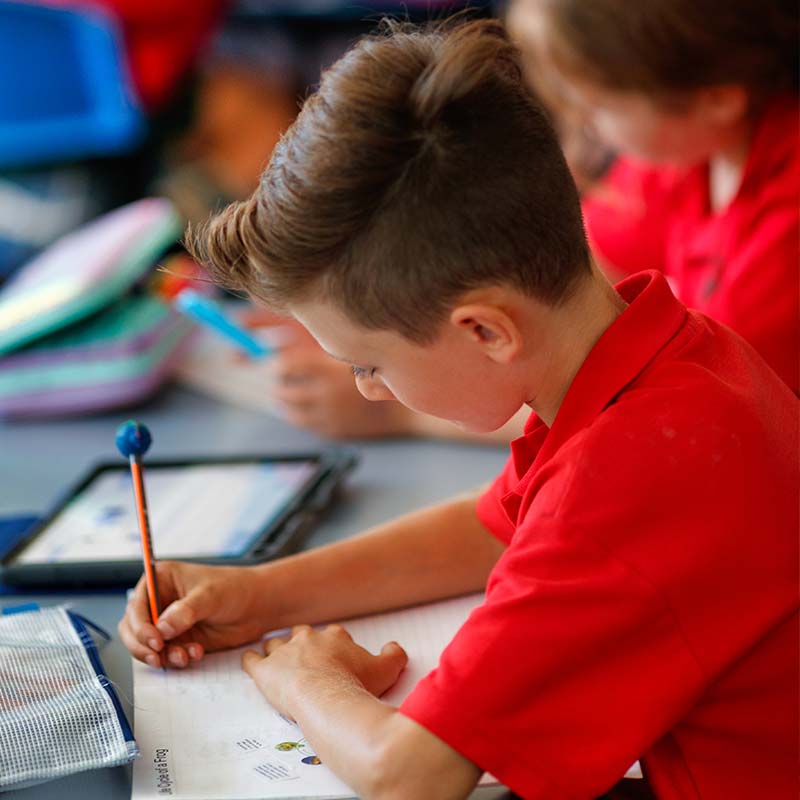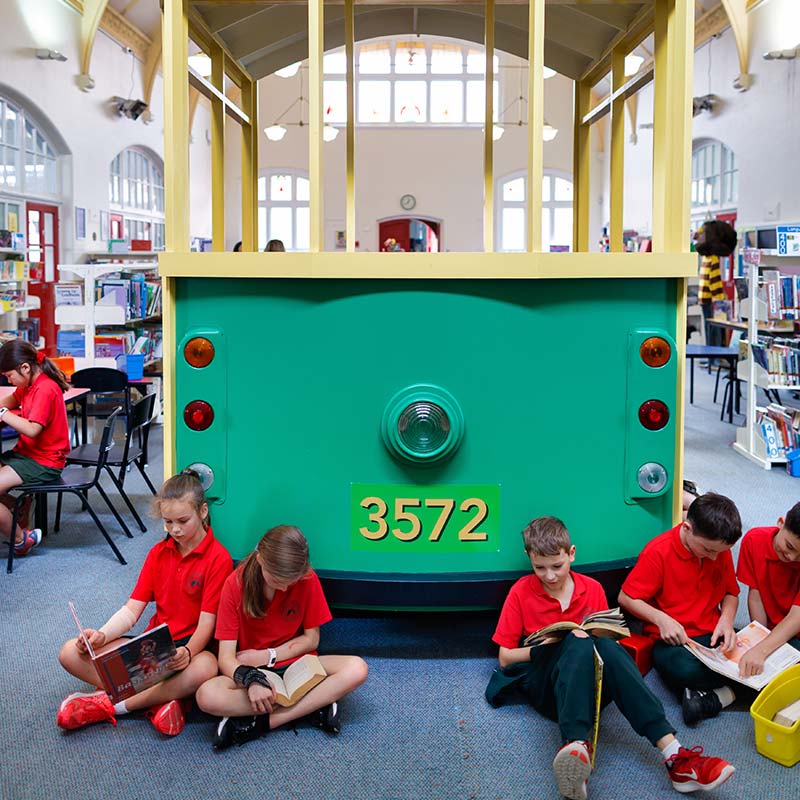The English Curriculum comprises reading and viewing, writing and speaking and listening. The English Curriculum helps create confident communicators, imaginative thinkers and informed citizens. It is through the study of English that students learn to analyse, understand, communicate and build relationships with others and with the world around them.
At Canterbury Primary School, our reading program includes the exploration of:
We aim to foster a love of reading in all of our learners, which in addition to the classroom program, is supported by weekly visits to our well-resourced library, daily reading practice, lunchtime library club, and an annual celebration of Book Week, with visiting authors, open-classrooms in the junior school and a much anticipated Book Week Parade.
Writing programs at Canterbury Primary School allow students to create literature and texts to inform, persuade and entertain. Students are inspired through hands-on experiences, and a mixture of modelled, shared and interactive writing sessions which develop their skills as writers. Guided Writing provides learners with opportunities to practise the process of writing with guidance and support. In addition to this, students are given opportunities to practise and apply their writing skills across all areas of the curriculum, such as procedural texts in Science, or timelines in History.
A consistent, visible and developmental sequence is followed for the teaching and learning of grammar and punctuation in all classrooms. This provides learners with agency to set their own goals and identify their next steps to continually improve.
Speaking and Listening is embedded in all curriculum areas. Students learn to communicate effectively and develop their oral language skills within and outside the classroom. They participate in small and whole-class discussions, guided reading, formal and informal presentations and through ‘turn and talk’ opportunities, where students can collaboratively share their thinking. Students are given opportunities to practise their speaking skills at whole school assemblies and through our CPS Parliamentary Program.
Students are defined as being EAL students if they come from a language background other than English, and require additional support in learning English as an additional language.
We have a well-resourced EAL Program, led by highly experienced teachers, who work in collaboration with the student’s teacher to plan targeted learning activities across all areas of the curriculum, which complements the classroom program. In addition to support within classroom programs, we also provide intensive English instruction for EAL students who require extra assistance with their English language development


Mathematics provides students with access to important mathematical ideas, knowledge and skills that they will consistently draw upon in their personal and work lives. The Mathematics Curriculum comprises number and algebra, measurement and geometry and statistics and probability.
At Canterbury Primary School, the teaching and learning of Mathematics is centred around our whole-school instructional framework. Teachers work collaboratively to plan rich, meaningful and engaging learning experiences, with ongoing assessment processes embedded, which allows teachers to tailor learning activities to target and support individual needs.
The deep learning of mathematical concepts and skills is fostered through the lens of the four mathematics proficiencies, which are embedded in lessons across the school. These include: ‘Understanding’, connecting the how and the why of mathematical concepts; ‘Fluency’, readily selecting and carrying-out mathematical procedures; ‘Problem-solving’, interpreting and investigating problem-situations and ‘Reasoning’, explaining, proving and justifying choices.
In each of the centre-teams across the school, zoning of learning occurs when exploring Number & Algebra. Students are zoned in groups according to their point of learning need on a continuum of specific mathematical concepts. Teachers work with groups of students with similar learning needs, providing targeted and specific lessons at their zone of proximal development (ZPD). Assessment is used to zone and rezone students into fluid, flexible groups and is a starting point rather than the end result of learning.
Applied Mathematics, which covers the Measurement & Geometry and Statistics & Probability curriculum, is taught within each class in mixed-ability groups. Throughout this learning program, students apply their understanding of concepts such as place value, the four operations as well as fractions and decimals in authentic, real-world situations.
At Canterbury Primary School, students are presented with opportunities to explore science concepts in an engaging, authentic and ‘hands-on’ approach, promoting curiosity, exploration, inquiry, critical-thinking and collaboration.
Science comprises two strands: Science Understanding and Science Inquiry Skills. Science Understanding covers students’ knowledge and understanding of science concepts. This strand is broken up into five areas: ‘Science as a Human Endeavour’, ‘Biological Science’, ‘Physical Science’, ‘Chemical Science’ as well as ‘Earth & Space Science’. As a part of our Science program, students enhance and connect their understanding of scientific content through explicitly focusing on the Science Inquiry Skills: questioning, predicting, planning, conducting, recording, analysing and communicating.